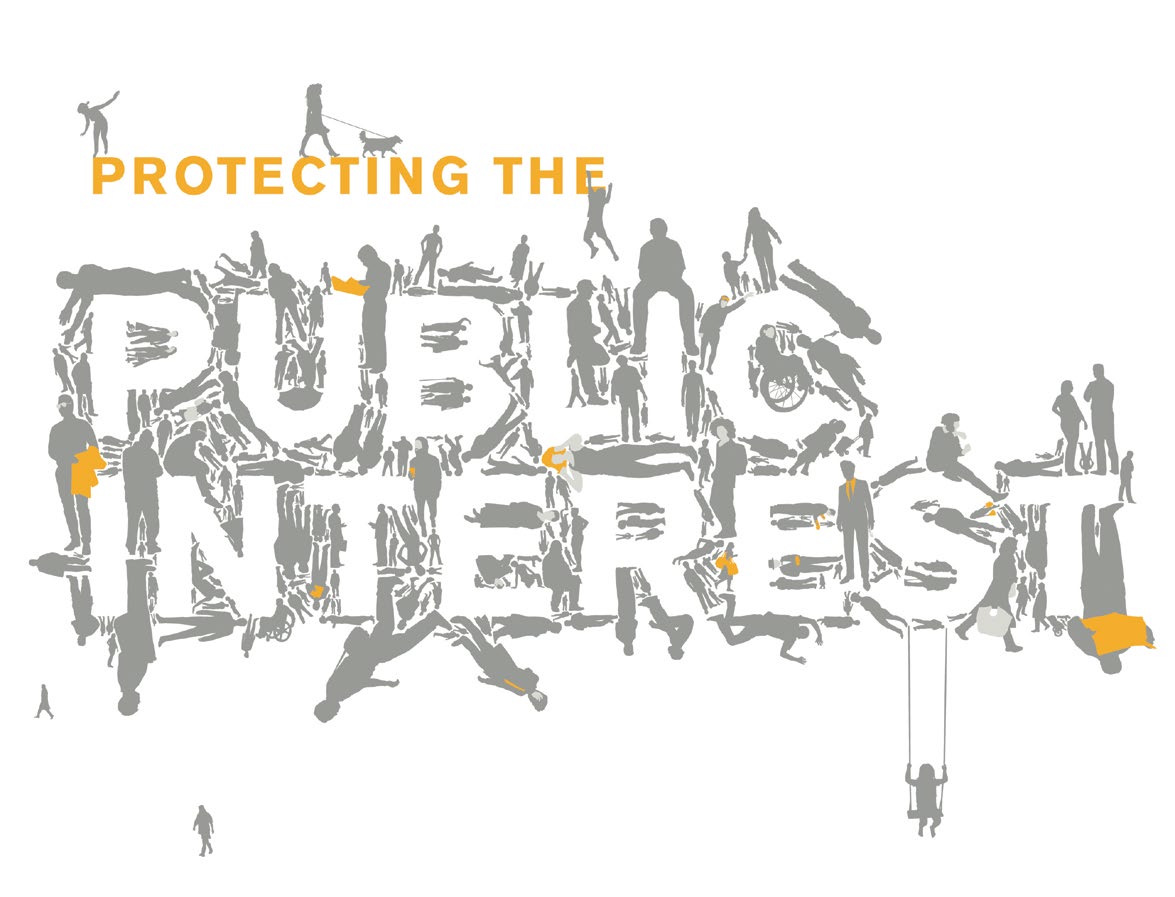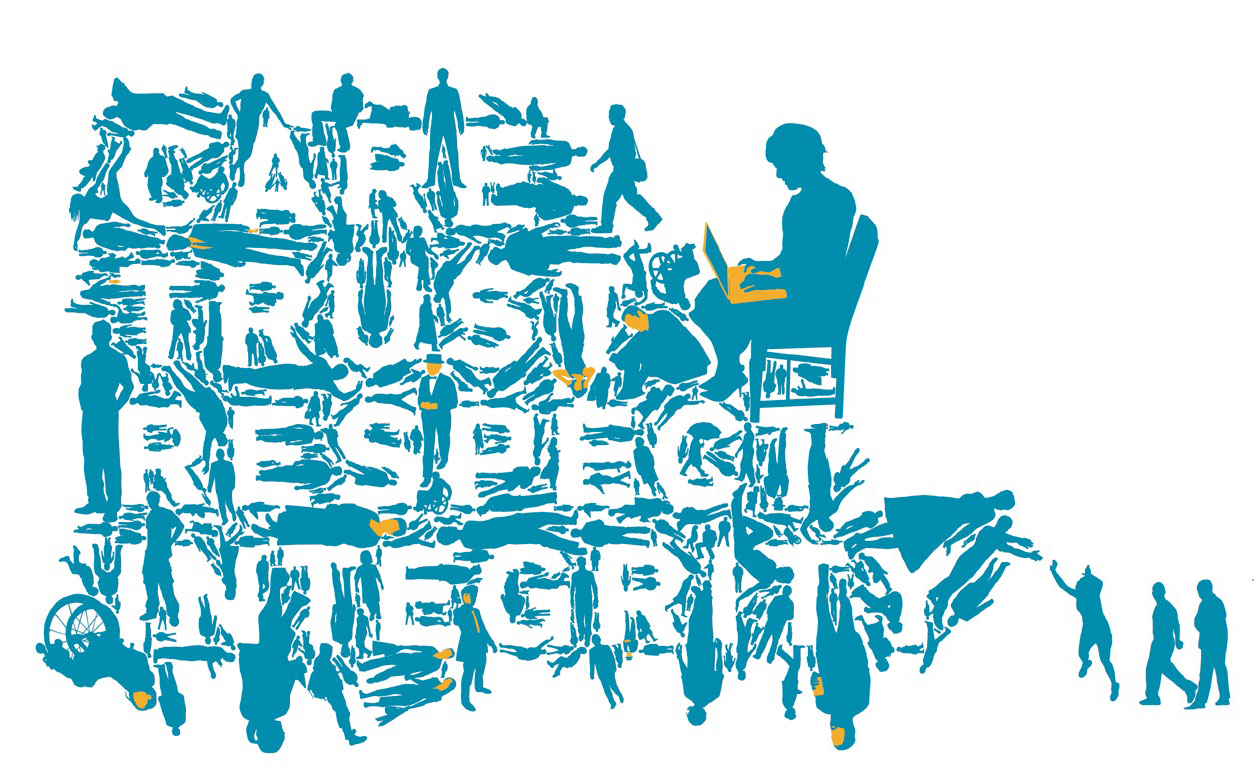Share this page
By Gabrielle Barkany and Brian Jamieson
Illustrations: Simon Dovar/Eye Candy

Every day teachers like you create learning opportunities to make a difference in the lives of your students. To inspire students and help them realize their potential, members of the profession exemplify the standards of care, trust, respect and integrity. These are the same qualities that members of other professions — including nurses, doctors and social workers — bring to their communications, interactions and decision-making.
The Ontario College of Teachers’ mandate is to serve and protect the public interest. The public expects that professionals possess a specific know-ledge base and a distinct skill set. As with any other regulated profession, the public wants assurance that the professionals who are licensed are current in their practice and committed to ongoing learning.
As teaching and learning evolve in the 21st century, so does the way in which the College regulates Ontario’s teaching profession. We have to because public expectations of professional self-regulators like the College have changed significantly.
We live in an age of accountability. As members of society today, we are better informed, more assertive and ask more questions. We want to ensure that when professionals make decisions — whether it’s a doctor prescribing medication or a teacher evaluating a student on a class presentation — those decisions are made fairly, consistently, impartially and in accordance with clearly defined and understandable standards.
Simply said, we, the public, are holding decision-makers responsible for their decisions. We want to see how and why decisions are made, and whether individuals or institutions are meeting the needs of the groups they were intended to serve. We, as parents, students, clients or patients, expect that a professional or an organization will account for its activities, accept responsibility for them and disclose the results in a transparent manner.
Accountability is a fundamental part of teaching. When we think about a teacher’s accountability, we think about the teacher’s responsibility for their students’ well-being and their learning progress. But what does this term mean for professional regulators like the Ontario College of Teachers, the Ontario College of Trades or the College of Veterinarians of Ontario? It means that we are bound to carry out our regulatory activities in ways that serve and protect the public interest.
The College fulfils its mandate by advancing the 11 objects cited in our Act. As such, we establish and enforce professional standards and ethical standards for teaching professionals, certify only those who have the required qualifications, language proficiency and are of good character.We also accredit teacher education programs and courses, provide ongoing professional learning opportunities for teachers, and remove or suspend teaching certificates of those who violate the professional and ethical standards established by teachers for teachers.
It is in the public interest to have certified, qualified teachers who aspire to and demonstrate high professional standards. The public deserves to know that students are safe in the care of teachers, and that teachers are providing students with meaningful learning opportunities. Professional learning is integral to teachers maintaining high professional standards in order to improve these opportunities for students. This is directly connected to the public’s interest in the teaching profession.
The College also has the legal responsibility to provide for the ongoing education of its members (see sidebar “The Role of Professional Learning”). This includes accrediting the programs and courses that enable teachers to become certified and to learn throughout their careers. The College has a role, among other organizations, in professional learning. We provide for the professional learning of our members (which is one of our 11 objects) by accrediting Additional Qualification courses (AQs), issuing professional advisories to our members to enhance their professional judgment, and by communicating with them regularly through Professionally Speaking and the e-newsletter, Your College and You, about information that supports their professional practice and knowledge — two of the College’s standards of practice. The College also provides for ongoing learning directly related to its work through standards institutes, presentations about the College in AQ courses and the College conference.
While the College’s mandate has not changed, the context in which we regulate is ever-changing. For example, the College has a leadership role in the development of the enhanced teacher education program in response to Ontario’s evolving education system, and it continues to ensure that teachers are prepared for today’s conditions and tomorrow’s challenges. The College’s professional advisory on social media usage is another example of the evolving context in which we regulate.
It is in the public interest to have certified, qualified teachers who aspire to and demonstrate high professional standards. The public deserves to know that students are safe in the care of teachers, and that teachers are providing students with meaningful learning opportunities.
To regulate in the public interest, a regulator must have a relationship with its members in order to provide advice and support for their careers through a variety of communication vehicles.
The College also has a legal responsibility to communicate with the public on behalf of its members. However, more efforts need to be made in this area. Recent focus group studies indicate a lack of awareness of the College’s roles and responsibilities among its members and the public.
In response to this lack of awareness, in 2014, the College launched a public awareness initiative — including a comprehensive print, radio and online communications program and a robust series of presentations to trustees and parent involvement committees in district school boards — to educate the public about who we are, what we do, how we regulate teaching in Ontario and, most importantly, how highly qualified our members are.
Whether it’s through the development of professional advisories or articles in Professionally Speaking, the College is committed to helping members to reflect on and enhance their professional practice.
To inspire confidence in the professionalism of teaching, the College highlights aspects of professionalism on its website — not as advocacy for individuals but, rather, to inspire confidence in the profession as a whole.
The context in which the College regulates is not static. As it continues to evolve, the College must and will adapt to the ever-changing regulatory landscape.

Like many members of the profession, Harriet Simand, OCT, understands what it means to provide students with meaningful learning experiences. Simand, a Toronto elementary school teacher and winner of the 2012 Prime Minister’s Award for Teaching Excellence, has a gift for showing her students the joy of learning. She’s staged a relaxation test to ease math anxiety, escorted students to city hall to plead for a ban on plastic bags, and introduced them to inner-city schools to help them understand diversity.
“I think you can cultivate that sense of social justice at a young age — that idea that ‘I can make a difference and I have a responsibility to,” she explained in a 2013 interview in Professionally Speaking.
Simand instils a sense of responsibility in her students to help them become caring, open and responsible citizens. The concept of responsibility is linked to the expectations that the public has of any professional. As professionals who are always evolving, teachers have the responsibility to constantly review their own level of competence and effectiveness, and to make improvements where necessary. The College has that same responsibility.
Ontario College of Teachers Registrar and CEO Michael Salvatori, OCT, caught up with the first Registrar of the College, Margaret Wilson, OCT, who shared her thoughts about professional learning, the College’s role in it and why it matters to the public.
Michael Salvatori: As I reflect on commitment to ongoing professional learning as a standard of practice, I see two elements: professional and learning. It’s the individual exercising judgment about what learning, what professional development, what information will help inform their practice. I think professional learning takes a variety of different forms such as conferences, workshops, seminars, professional dialogue, engagement in professional learning communities and mentoring, among others.
Margaret, can you share the view of professional learning as the College began in 1997?
Margaret Wilson: Back then, what was starting to emerge was the real need for targeted professional learning, which would be available to teachers dealing with the new curriculum or new technologies. For instance, the substantial curriculum shift that followed the elimination of Grade 13 should have been supported by a province-wide professional learning initiative. What I have not seen happen is a system where the College provides input to the Ministry at the point of development of some of these initiatives.
MS: In a profession as diverse and rich as teaching, many organizations play a role in professional learning. From your perspective, as the leader who established the College as a self-regulatory body, what is the College’s role in the ongoing professional learning of its members?
MW: The College should establish reasonable, basic expectations for ongoing professional learning. The other responsibility is quality control in those areas where it accredits providers. For instance, what do we know of the members’ experience with Additional Qualifications courses? I think the College could also publish examples of best practices. This is really what Professionally Speaking is doing when it provides stories about what teachers are doing in the classrooms that is working well, that is new and different.
The advisories on professional issues are also very useful because they are practical. The discussions with the Ministry could produce some very productive new ways of looking at professional learning for new initiatives.
MS: What should the public expect to know about members’ ongoing professional learning?
MW: For now, all the public has access to is the information on Additional Qualifications courses and any university courses that teachers ask to be recorded on their teaching certificate.
I think school boards could do a much better job of publicizing the fact that their teachers are engaged in professional learning. The members of every other professional regulatory body in Ontario report their professional learning to their professional body.
MS: One of our objects is communicating with the public on behalf of our members. e communicate to the public about professional learning through our magazine and through newsletters and presentations. Are there are other communication vehicles we should consider?
MW: Social media can capture a very large audience.
MS: Why is communicating with the public important?
MW: Every profession wants the public to have confidence in its competence and professionalism. A teacher can be in a career for 25 to 35, and even 40 years now, so it’s really important that the public knows that the teacher is aware of changing student needs and new curriculum demands, and is reasonably competent in new technologies.
It’s a matter of having confidence in the profession and, therefore, in the schools — public and private — and in the whole range of institutions in which members of the College work, including faculties of education.